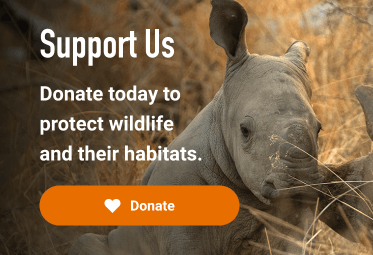Harnessing Technology for Biodiversity: Key takeaways from World Wildlife Day
The Connected Conservation Foundation recently had the honour of addressing the United Nations in New York and the ITU Event in Geneva on March 4th, 2024 for World Wildlife Day.
Published: 13 March 2024
Our Executive Director, Sophie Maxwell and Technical Director, Swabir Abdulrehman shared CCF’s experiences leveraging technology for conservation, emphasising its role in tackling poaching, mitigating human-wildlife conflict and preserving critical habitats to meet international 30 by 30 commitments.
With less than six years until 2030, urgent action is needed to double terrestrial protected areas and quadruple marine ones. The event highlighted the necessity of utilising wide-scale technologies, including satellites and on-the-ground sensors, to provide early threat warnings, mitigate harmful profit-driven activities and involve local communities in data-driven conservation efforts.

Here are our five key takeaways from the event:
- The conservation technology sector is rapidly evolving with innovations spanning wide-area satellite monitoring, ground-based sensors and AI analysis. This growth, coupled with the influx of new organisations and talent, holds promise for impactful solutions in the future. Yet for end users, the conservation technology space is becoming increasingly complex, to source, secure and land suitable solutions.
- We need to prioritise the provision of basic digital infrastructure to under-resourced protected areas. There is a disparity between well-equipped, well-funded protected areas and those that lack resources, including connectivity and data management for informed interventions. Bridging this digital divide is crucial for enabling access to transformative tools and enhancing conservation efforts. CCF is working towards this goal. In collaboration with Cisco and African Parks, CCF has helped equip 19 park headquarters across 10 countries, with tools to help harness Starlink connectivity for park management.
- Establishing a holistic 'tech ecosystem' approach is vital for sustainability. This approach spans technical reliability, training local technology champions, engaging communities in data collection and demonstrating the benefits of tools gradually to gain broader adoption. CCF is proud to support an example of this approach, collaborating with the Northern Rangelands Trust and partners in Kenya, for the successful scaling of IoT solutions to 28 conservancies.
- Innovation must place local communities at the centre of solutions. Artificial intelligence holds huge potential for accelerating conservation, but requires high-quality, field-based training data. By investing in community-led data collection, we can bridge this local data gap, empowering them and amplifying the impact of their conservation initiatives. Communities must be at the heart of innovation, especially within emerging conservation finance mechanisms, so they can harness the benefits and self-generate income. Let's unite around a shared vision and focus minds on the most effective contributions that optimise innovation efforts. Our strength lies in collective action, looking beyond our siloed solutions areas and supporting each other.
- We need to develop deeper, long-lasting technology partnerships between the private sector, governments and conservation organisations. The private sector can significantly enhance conservation capabilities by leveraging its expertise and resources. By putting local people at the centre and providing funding, equipment and technical support, partnerships can help improve the effectiveness of protected areas worldwide.
Connected technology ecosystems help facilitate collaboration on-the-ground and break down partner silos, contributing to transformative conservation efforts. CCF extends gratitude to all our field partners and individuals dedicated to conservation, along with Cisco, Airbus Foundation, Actility and EarthRanger for their support in this mission.
Together, we can make remarkable progress in safeguarding the planet's biodiversity.



